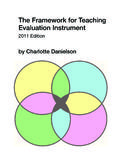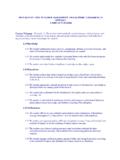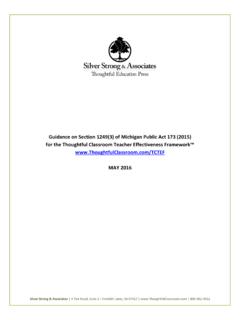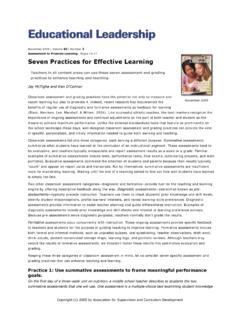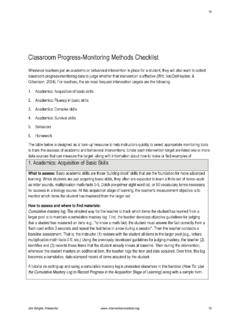Transcription of Health and Family Life Education TEACHER …
1 Health and Family life Education TEACHER TRAINING MANUAL Self and Interpersonal Relationships Theme Unit Sexuality and Sexual Health Theme Unit HFLE Training Manual Acknowledgements Sponsors: This project was supported by UNICEF, which provided funds for curriculum development, training and evaluation of the HFLE Common Curriculum. Additional support was provided by the Ministries of Education of participating countries, including Antigua, Barbados, Grenada and St. Lucia. Country Contributors: Ministries of Education of Antigua, Barbados, Grenada, and St. Lucia Hermione Baptiste, HFLE Coordinator, Grenada Maureen Lewis, HFLE Coordinator, Antigua Arthusa Semei, HFLE Coordinator, St. Lucia Patricia Warner, HFLE Coordinator, Barbados EDC Contributors: Connie Constantine, Senior Project Director Athi Myint-U, Curriculum Developer Health and Human Development Programs UNICEF Contributors: Elaine King, Project Officer and Adolescent and HIV/AIDS Specialist Jennifer Crichlow, HFLE Regional Coordinator CARICOM Contributors: Morella Joseph, Deputy Programme Manager, Human Resource Development With special thanks to those who attended an initial HFLE training of trainers workshop in St.
2 Lucia (June 2005) and provided input into the development and refinement of these classroom lessons. January 2009 Health and Family life Education TEACHER TRAINING MANUAL Self and Interpersonal Relationships Theme Unit Sexuality and Sexual Health Theme Unit Health and Family life Education TEACHER TRAINING MANUAL ~ TABLE OF CONTENTS ~ I. Purpose of the Training Manual .. 3 II. Overview of Health and Family life Education (HFLE) and Pilot evaluation .. 4 III. Training Sessions .. 11 SESSION ONE: WHAT IT MEANS TO BE AN HFLE TEACHER .. 12 What Do I Bring to the Classroom? The Decisions We Make and Why What To Do SESSION TWO: REGIONAL STANDARDS AND CORE OUTCOMES.
3 17 Introductory Activity - HFLE and Our Community Regional Standards and Core Outcomes What Are We Trying to Achieve? SESSION THREE: life SKILLS Education .. 31 What Is life Skills Education ? Theories Supporting life Skills Education Types of life Skills and Translating Skills into Steps Using life Skills to Promote Positive Health Behaviours SESSION FOUR: TEACHING METHODS .. 75 Teaching Methods for life Skills Education Reasons for Using Different Interactive Teaching Methods Creating a Respectful and Conducive Environment for Learning Modeling of Interactive Teaching and Tips for Teaching Creating Your Own Interactive Activity and Practice of Teaching Skills SESSION FIVE: ASSESSMENT.
4 93 What is Alternative Assessment? Creating and Using Performance Tasks and Rubrics for Assessment Creating and Using an HFLE Student Portfolio SESSION SIX: SELF AND INTERPERSONAL RELATIONSHIPS UNIT .. 111 Practice and Review of Lesson Plans SESSION SEVEN: SEXUALITY AND SEXUAL Health UNIT .. 115 Practice and Review of Lesson Plans IV. Sample Training Agenda for Teaching Training .. 119 HFLE TEACHER Training Manual Page 2 V. Lesson Plans from HFLE Common Curriculum .. 121 Purpose of this Manual The purpose of this manual is to provide regional coordinators with materials and resources to conduct in-country TEACHER -training on two unit themes in the Health and Family life Education (HFLE) Common Curriculum: Self and Interpersonal Relationships and Sexuality and Sexual Health .
5 Lessons for the Common Curriculum were developed through a participatory process with HFLE Coordinators, teachers, and others. They build on the foundation of the Regional Curriculum Framework, which sets out the HFLE philosophy and standards for teaching and identifies the desired knowledge, skills and behavioral outcomes for students. Unit themes and the content of lessons are responsive to the many Health and social challenges in the region, including HIV/AIDS, violence and substance abuse. The Common Curriculum thus provides schools and teachers with a concrete set of lessons that are consistent with and flesh out the Regional Framework. Through the implementation of these lessons in diverse school settings and countries, the goal is to have a positive impact on student Health , which in turn, relates to school attendance and learning.
6 In collaboration with UNICEF, CARICOM and HFLE coordinators and teachers in four CARICOM countries, St. Lucia, Grenada, Barbados and Antigua, the Education Development Center (EDC) is coordinating a three-year evaluation plan to monitor and evaluate the effectiveness of the Common Curriculum and, specifically, the two critical classroom units Self and Interpersonal Relationships (which incorporates violence prevention), and Sexuality and Sexual Health (which encompasses HIV/AIDS prevention). These two units aim to achieve measurable gains in students' knowledge, Health -promoting attitudes and skills and, most importantly, reductions in risk behaviors related to HIV, sexually transmitted infections (STI), unintended pregnancy and violence.
7 As part of the evaluation plan, process evaluation activities were conducted to collect information on the needs of regional coordinators and teachers for implementing the curriculum. One of the findings of these process evaluation activities was the need for a regional coordinators training manual that could help to standardized TEACHER training across the four countries. Drawing upon lessons learned and needs expressed by regional coordinators and teachers during the process evaluation , the contents of this manual include the following: Seven sessions designed to increase teachers knowledge and skills for implementing life skills Education , and, specifically, the HFLE curriculum lessons, in their classrooms; Background resources and information for trainers on HFLE, life skills Education and teaching methods used to teach life skills, including materials on behavioural theories supporting life skills Education , strategies for establishing a respectful classroom atmosphere when teaching life skills, and alternative assessment methods.
8 HFLE common curriculum lesson plans for 2 major themes, Self and Interpersonal Relationship and Sexuality and Sexual Health ; and A Sample Agenda for in-country TEACHER training. HFLE TEACHER Training Manual Page 3 Overview of Health and Family life Education (HFLE) and evaluation Study of HFLE in Four Countries Sources: life Skills Manual, Caribbean Community (CARICOM) Project The HFLE Regional Curriculum Framework, UNICEF, 2005 Health and Family life Education evaluation , Form 1 Student and TEACHER Baseline Survey Results, Education Development Center, Inc., 2006. HFLE BACKGROUND The Caribbean Community (CARICOM) comprises of fourteen (14) Member States and five (5) Associate Members. The fourteen member States are: Antigua and Barbuda, Bahamas, Barbados, Belize, Dominica, Grenada, Guyana, Jamaica, Montserrat, St.
9 Kitts and Nevis, St. Lucia, St. Vincent and the Grenadines, Suriname and Trinidad and Tobago. The Associate Members of the Community are: Anguilla, Bermuda, British Virgin Islands, Cayman Islands and Turks and Caicos Islands. Increasingly in the Caribbean, changing realities have placed additional strains on children and young people, modifying their behaviour and putting their life and Health at risk. There is a need for Education systems in the region to develop and implement curricula that respond to these changes. In the 1990's, the Health and Family life Education (HFLE) Programme was implemented in primary and secondary schools in some member states and in others to address some of these changes.
10 However, the HFLE Programme, which is also commonly known as the life Skills Programme, was not seriously implemented classrooms. Findings of a survey to determine the status of HFLE in the Region (Semei, 2005) indicated that, for the most part, teachers who delivered the programme in an ad hoc manner or did not receive adequate training to teach this programme. In addition, a great deal of emphasis was placed on conveying knowledge and information rather than developing life skills. It became very clear, that in order to seriously address the numerous problems and challenges that young people in the Caribbean encounter on a daily basis, some serious modifications had to be made to the HFLE Programme, including a renewed emphasis on the acquisition of life Skills.

